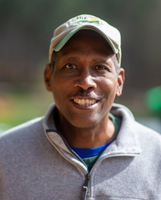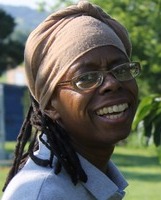Overview
Wallace Center’s Farmer Conservation Leader Subaward Program is a competitive subaward program for the Mississippi River Region (HUCs 07 and 08), that aims to address the diverse needs of historically underserved farming communities, center networking and co-learning among subawardees, and resource underserved farmers as conservation leaders. This program will work with an advisory group to support nine organizations collaborating with underserved farmers on water quality, habitat, or forestry improvements, thus reducing phosphorus and nitrogen loss.
The goals of this subaward program are to:
- Work directly with historically underserved farmers on novel or innovative techniques, methods, or approaches that reduce nonpoint source pollution and increase the sustainability and resiliency of their operations;
- Leverage partnerships to increase knowledge sharing and collaboration within and among historically underserved communities;
- Collect and analyze data to demonstrates the results of funded projects;
- Disseminate results to communities to inform future conservation or management practices and expand adoption of the most cost-effective and sustainable approaches.
Proposed activities for this program must fall entirely within the Upper and Lower Mississippi River Region (Gulf drainage portions of Minnesota, Wisconsin, Illinois, Missouri, Arkansas, Mississippi, Louisiana).
Funded Projects
The Wallace Center at Winrock International is pleased to announce the nine recipients of its Farmer Conservation Leader Subaward Program, an initiative of the Environmental Protection Agency’s Gulf of Mexico Division (EPA-GMD). The participating subawardee organizations and Tribal nations are as follows:
- A Red Circle: This North St. Louis County, Mo.-based organization will partner with seven farmers to document and disseminate their existing water quality and conservation practices and support implementation of new practices that are best for their context.
- Mileston Cooperative Association: This Tchula, Miss.-based organization will implement a toxic algae mitigation project designed to improve water quality through nutrient management and ultraviolet light treatment and collaboration with farmers.
- Sông Community Development Corporation: This New Orleans-based farming non-profit organization proposes to work with farmers on reducing non-point source pollution with local technical assistance provider partner, Sprout NOLA.
- Dream of Wild Health: This Minneapolis-based organization will create an farmer incubator & training program with partners, Intertribal Agricultural Council, Upper Midwest Indigenous Seed Keepers Network, and Savanna Institute.
- Holmes County Food Hub: This Durant, Miss.-based organization seeks to partner with New North Florida Cooperative to implement water management on historically underserved producer farms through unmanned aerial vehicles in the Lower Mississippi River Region.
- Alliance of Sustainable Farms: This Holmes County, Miss.-based organization will work to strengthen the capacity of Mississippi’s historically underserved farmers and communities by implementing sustainable, conservation, and climate smart agricultural practices focused on water quality.
- Hmong American Farmers Association (HAFA): This membership-based organization in St. Paul will increase the percentage of the HAFA Farm that is seasonally covered in cover crops to 40% over three years by training their farmers on cover crops, water quality monitoring, soil sampling, and providing one on one technical assistance.
- Potlikker Capital: This charitable, integrated non-profit capital fund based in Ithaca will support farmers in the Upper Mississippi River Basin region to transition to sustainable farming methods, resulting in improved soil conditions, environmental conservation, increased farm profitability, and healthier communities with a focus on symbiotic mutualism.
- Ho-Chunk Nation: This tribal nation with traditional territory across modern-day Wisc., Minn., and Ill., will recruit a cohort of farmers to receive targeted training on regenerative practices and traditional ecological knowledge. The Ho-Chunk Nation will also offer field days and community events for hands-on learning and to promote broader awareness.
Project Advisors

Mackenize Martinez is a native of the southeastern United States and currently resides on her tribe’s ancestral lands in rural northwest Louisiana. Over the span of her professional career, Mackenize has held the roles of student, advocate, intern, and young professional in both the nonprofit sector and the federal government. Mackenize is passionate about positive and progressive societal change driven by collective agriculture, food sovereignty, and racial equity advocacy.
Mackenize currently serves as the Southeastern Region Technical Assistance Specialist for the Intertribal Agriculture Council, which over the last three decades, has become recognized as the most respected voice within the Native American community and government circles on agricultural policies and programs in Indian country. In her role, Mackenize provides direct assistance to Native American producers with USDA program access and works to leverage partnerships, support project development, government-to-government relations, and focus on resource identification to meet individual producer and tribal community priorities related to agriculture, land management, and community development.

Brennan Washington is a farmer and co-owner of Phoenix Gardens along with his wife, Gwendolyn. Phoenix Gardens is a small, diversified farm that grows produce and raises laying hens and broiler chickens. He is a graduate of the Southern University Small Farm Agricultural Leadership Institute and the University of Georgia’s Advancing Georgia Leaders in Agriculture leadership program.
Brennan has served as a board member of Southern SARE, the sustainable research and education arm of the USDA, Georgia Organics, and the Southern Sustainable Agriculture Working Group (SSAWG) and is the founder and former board chair of the Georgia Farmers Market Association and has recently been selected as a fellow in the Business Alliance for Local Living Economies (BALLE). He regularly serves as a grant reviewer for several agricultural grant programs reviewing some $20-$50 million in grants annually.
Mr. Washington had a long career in information technology management prior to starting his farming career.

Pakou Hang is the daughter of Hmong American farmers and has spent the last 36 years growing and selling mixed vegetables with her family at the Saint Paul Farmers Market in Minnesota. She was a founding member, and the inaugural Executive Director of the Hmong American Farmers Association (HAFA), a statewide nonprofit that builds the capacity and intergenerational wealth of Hmong farmers in the state. While at HAFA, she helped secure long-term access to a 155-acre farm; launched a food hub; started a microlending program that included a matched savings account component for farmers; and developed a bi-lingual and bi-cultural beginning farmer training curriculum.
Pakou also served on the Minnesota Good Food Access Advisory Committee, the Minnesota Pollution Control Agency Citizens’ Board, and the Minneapolis Food Council. She has reviewed grants and served as an advisor for multiple federal programs including the Beginning Farmer and Rancher Development (BFRD) Program and the Food Insecurity Nutrition Incentive (FINI) Program and helped design and launch the Growing Justice Fund, a pooled fund committed to supporting farmers of color and making the current food system more equitable.
Pakou received her master’s degree in political science from the University of Minnesota and her bachelor’s degree from Yale University where she concentrated her studies on revolutions in Latin America. Her expertise includes program design and budget management, conducting community centered research and evaluation, and designing train the trainer curriculum.

Felicia Bell has worked as a Sustainable Agriculture Specialist at the National Center for Appropriate Technology Gulf States regional office in Jackson, Mississippi since 2013. Bell, a fourth-generation farmer and founding member of RD&S Farm, LLC, is fascinated by traditional agriculture strategies of all cultures, especially African farming methods and techniques. She was born into agriculture, and what most people today would refer to as homesteading. Her family sustained themselves from the land with food and by-products.
Bell’s deep-rooted values in helping others as a producer have been the driving force in her assisting communities. Over many years, she has learned several appropriate technologies (i.e., methods and practices) to assist small-scale producers with resourceful and inexpensive solutions to lessen cost burdens and increase the viability of farm enterprises. These experiences have warranted Bell rewarding opportunities through sustainable agriculture project development, Board of Directors’ assignments, and contractual agreements. Bell believes that everyone deserves the right to access healthy foods, and with the collective effort of small sustainable farmers across the country, this can become a reality.
Application Information
CONCEPT DUE DATE:
Extended to May 15, 2023, at 11:59 PM CT. The deadline to submit concepts has passed.
FUNDING PROGRAMS IN OTHER GEOGRAPHIES:
Please note, proposed activities for Wallace Center’s subaward program must fall entirely within the Upper and Lower Mississippi River Region, highlighted below in yellow (Gulf drainage portions of Minnesota, Wisconsin, Illinois, Missouri, Arkansas, Mississippi, Louisiana).


